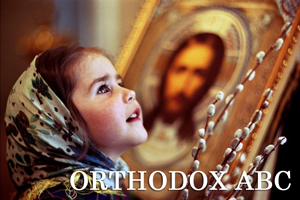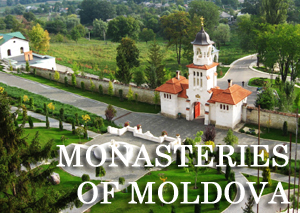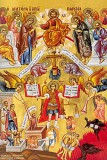
Introduction
The Sunday of the Last Judgment is the third Sunday of a three-week period prior to the commencement of Great Lent. During this time, the services of the Church have begun to include hymns from the Triodion, a liturgical book that contains the services from the Sunday of the Publican and the Pharisee, the tenth before Pascha (Easter), through Great and Holy Saturday. On this day, focus is placed on the future judgment of all persons who will stand before the throne of God when Christ returns in His glory.
Biblical Story
The commemoration for this Sunday is taken from the parable of our Lord Jesus Christ concerning his Second Coming and the Last Judgment of all, both the living and the dead. In Matthew 25:31-46, Christ speaks about what will happen at this specific point in time when He will “come in His glory, and all the holy angels with Him” (v. 31).
At His coming, “He will sit on the throne of His glory,” and all of the nations will be gathered before Him. He will separate them “as a shepherd divides his sheep from the goats” (v. 32). The sheep will be placed on His right hand, and the goats on the left.
To the sheep, He will say “Come, you blessed of My Father, inherit the kingdom prepared for you from the foundation of the world” (vv. 33-34)
This kingdom is offered to the sheep because of their compassion and service to those in need. Jesus says, “…for I was hungry and you gave Me food; I was thirsty and you gave Me drink; I was a stranger and you took Me in; I was naked and you clothed Me; I was sick and you visited Me; I was in prison and you came to Me.”
The sheep, who are the righteous chosen for the kingdom, will ask how this could be so. They will ask Jesus when was He hungry or thirsty, a stranger, naked, and in prison. He will answer them by saying, “Assuredly, I say to you, inasmuch as you did it to the least of these My brethren, you did it to me” (vv. 35-40).
Christ the King, seated on His throne of judgment, will then turn to the goats on His left and say, “Depart from Me, you cursed, into the everlasting fire prepared for the devil and his angels” (v. 41). He will condemn them because they did not feed Him when He was hungry, give Him drink when He was thirsty, take Him in when He was a stranger, clothe Him when He was naked, visit Him when He was sick or in prison.
The goats will ask the Lord, “When did we see You hungry or thirsty or a stranger or naked or sick or in prison, and did not minister to You?” Then He will answer them saying, “Assuredly, I say to you, inasmuch as you did not do it to one of the least of these, you did not do it to me” (vv. 42-45).
Jesus concludes His words on the Last Judgment by stating that those on the left “will go away into everlasting punishment, but the righteous into eternal life” (v. 46).
On the past two Sundays of this pre-Lenten period, the focus was placed on God’s patience and limitless compassion, of His readiness to accept every sinner who returns to Him. On this third Sunday, we are powerfully reminded of a complementary truth: no one is so patient and so merciful as God, but even He does not forgive those who do not repent. The God of love is also a God of righteousness, and when Christ comes again in glory, He will come as our Judge. Such is the message of Lent to each of us: turn back while there is still time, repent before the End comes.
This Sunday sets before us the eschatological dimension of Lent: the Great Fast is a preparation for the Second Coming of the Savior, for the eternal Passover in the Age to Come, a theme that is also the focus of the first three days of Holy Week. But the judgment is not only in the future. Here and now, each day and each hour, in hardening our hearts toward others and in failing to respond to the opportunities we are given of helping them, we are already passing judgment on ourselves.
Another theme of this Sunday is that of love. When Christ comes to judge us, what will be the criterion of His judgment? The parable of the Last Judgment answers: love—not a mere humanitarian concern for abstract justice and the anonymous “poor,” but concrete and personal love for the human person—the specific persons that we encounter each day in our lives.
Christian love is the “possible impossibility” to see Christ in another person, whoever he or she is, and whom God, in His eternal and mysterious plan, has decided to introduce into my life, be it only for a few moments, not as an occasion for a “good deed” or an exercise in philanthropy, but as the beginning of an eternal companionship in God Himself.
The parable of the Last Judgment is about Christian love. Not all of us are called to work for “humanity,” yet each one of us has received the gift and the grace of Christ’s love. We know that all persons ultimately need this personal love—the recognition in them of their unique soul in which the beauty of the whole creation is reflected in a unique way. We also know that people are in prison and are sick and thirsty and hungry because that personal love has been denied them. And, finally, we know that however narrow and limited the framework of our personal existence, each one of us has been made responsible for a tiny part of the Kingdom of God, made responsible by that very gift of Christ’s love. Thus, on whether or not we have accepted this responsibility, on whether we have loved or refused to love, shall we be judged.
Source: Great Lent, Holy Week, and Pascha
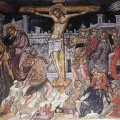
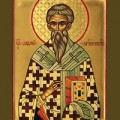
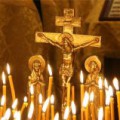
 Memorial house of romanian elder Sofian Boghiu Consecrated in his native Village
Memorial house of romanian elder Sofian Boghiu Consecrated in his native Village 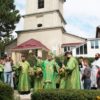 On the 14th Sunday after Pentecost, His Eminence Metropolitan Vladimir celebrated the Divine Liturgy in the St. Nicolas Monastery, Dobrusa village, Soldanesti region
On the 14th Sunday after Pentecost, His Eminence Metropolitan Vladimir celebrated the Divine Liturgy in the St. Nicolas Monastery, Dobrusa village, Soldanesti region  Inauguration of the volume of articles presented at the National Scientific Conference “The Orthodox Church and the State: Faith and Knowledge”
Inauguration of the volume of articles presented at the National Scientific Conference “The Orthodox Church and the State: Faith and Knowledge”  The 12th Sunday after Pentecost – kindness in God changes the world we live in
The 12th Sunday after Pentecost – kindness in God changes the world we live in  The 11th Sunday after Pentecost – loving our God and our neighbor
The 11th Sunday after Pentecost – loving our God and our neighbor  The Transfiguration of the Lord, celebrated in the Nativity of the Lord Cathedral in Chisinau
The Transfiguration of the Lord, celebrated in the Nativity of the Lord Cathedral in Chisinau  His Eminence Metropolitan Vladimir celebrates 65th anniversary
His Eminence Metropolitan Vladimir celebrates 65th anniversary  Divine Service at the St. Theodore of Tyre Monastery (Ciuflea) in Chisinau, and congratulation of Archimandrite Nicolae (Rosca), the Monastery’s confessor-administrator, on the 50th anniversary.
Divine Service at the St. Theodore of Tyre Monastery (Ciuflea) in Chisinau, and congratulation of Archimandrite Nicolae (Rosca), the Monastery’s confessor-administrator, on the 50th anniversary.  The Tenth Sunday after Pentecost: Divine Liturgy in the Nativity of the Lord Cathedral in Chisinau
The Tenth Sunday after Pentecost: Divine Liturgy in the Nativity of the Lord Cathedral in Chisinau 
